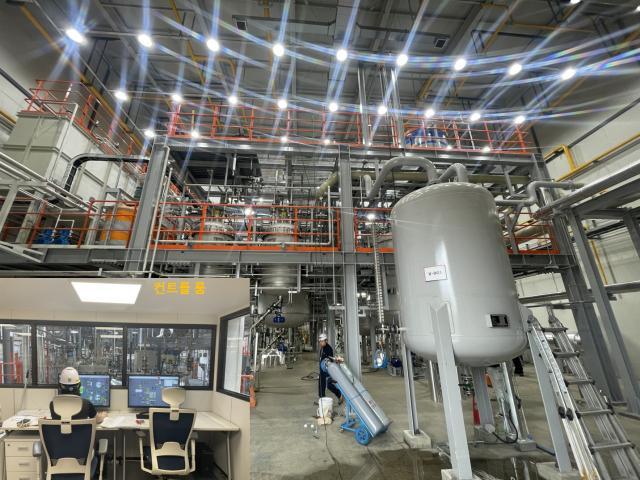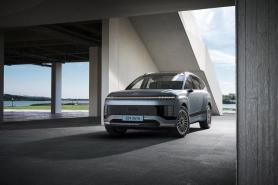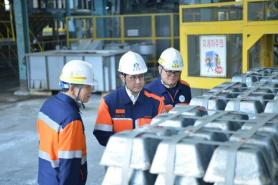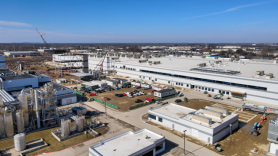
SEOUL, September 2 (AJP) - The Korea Electrotechnology Research Institute said Tuesday it was preparing to move its silicon-graphene composite anode material for lithium-ion batteries into mass production, a step that could extend the range of electric vehicles and improve battery performance in consumer electronics.
Silicon has long been regarded as a promising alternative to graphite, the standard anode material in lithium-ion batteries, because it can store roughly 10 times more energy.
But its tendency to swell and crack during charging cycles, coupled with low electrical conductivity, has limited its use.
Researchers at the government-funded institute said they had overcome those hurdles by combining silicon with graphene, a single-atom-thick layer of carbon known for its strength and conductivity. In the composite, graphene forms a mesh-like coating around silicon particles, reducing structural degradation and improving stability.
The team also developed a water-based dispersion process, using oxidation-reduction methods, that allows for the scalable production of high-quality graphene in forms suitable for battery manufacturing.
Using a one-step process, they created a “core-shell” structure in which graphene encapsulates silicon, allowing the proportion of silicon in the anode to rise from 5 percent to 20 percent without sacrificing stability.
According to KERI, the technology could boost the driving range of electric vehicles by more than 20 percent. The researchers also emphasized cost advantages: instead of relying on expensive nano-silicon, the method uses more affordable micron-sized silicon.
Commercial production of graphene is expected to be carried out by JNC Materials, a battery materials company that licensed the technology from KERI for 1.1 billion won, or about $790,000, in 2021.
JNC has since built facilities capable of producing thousands of tons of graphene annually — enough, the company said, to supply batteries for about 60,000 electric vehicles or hundreds of millions of smartphones.
“This technology simultaneously delivers higher capacity and improved stability for secondary batteries,” said Jeong Seung-yol, director of KERI’s Nano Hybrid Technology Research Center.
Copyright ⓒ Aju Press All rights reserved.




